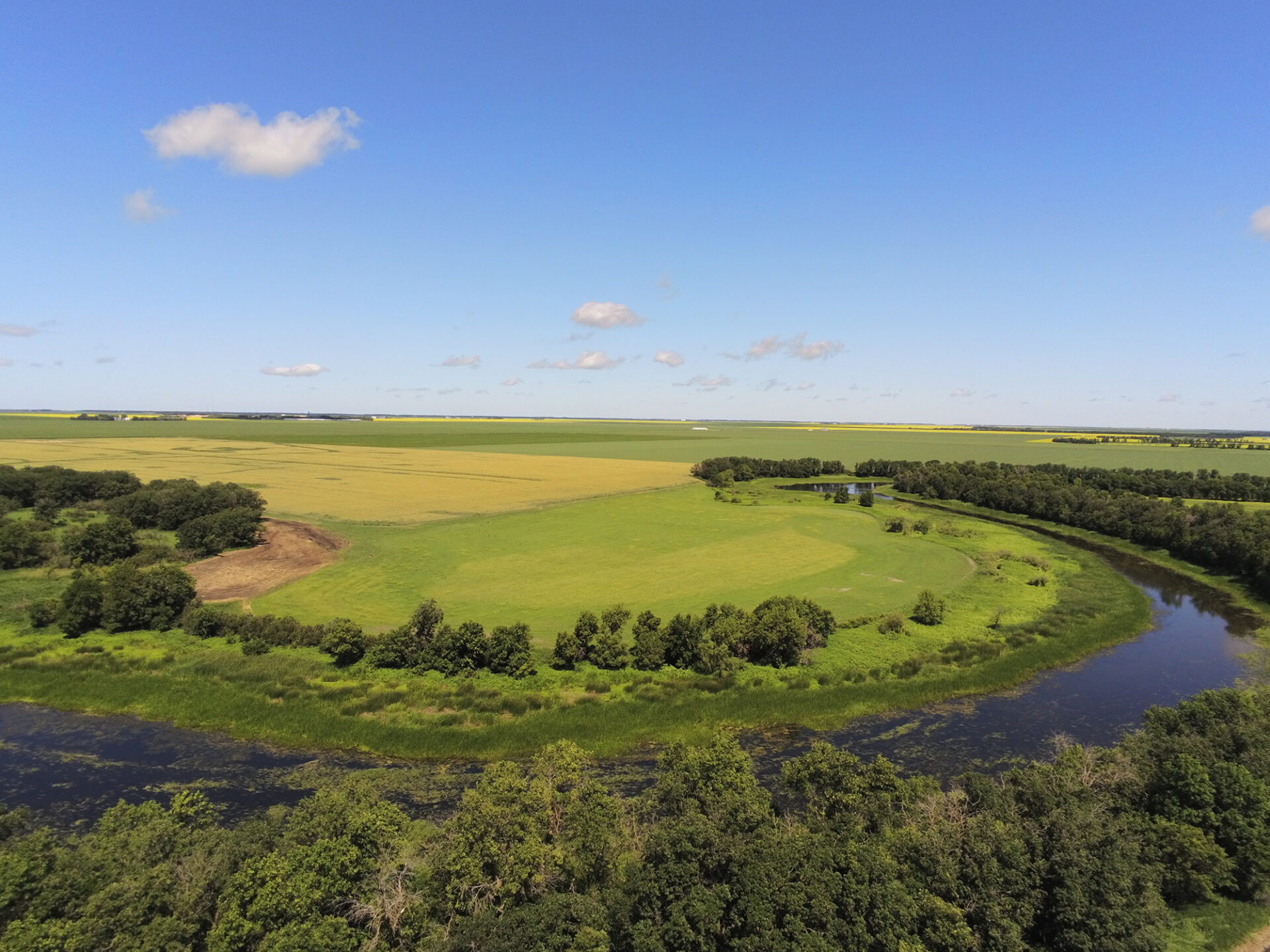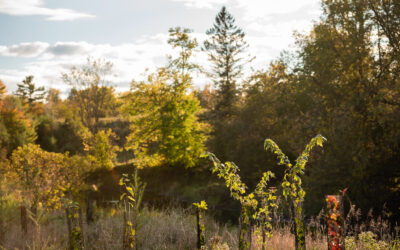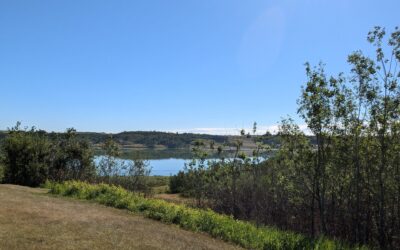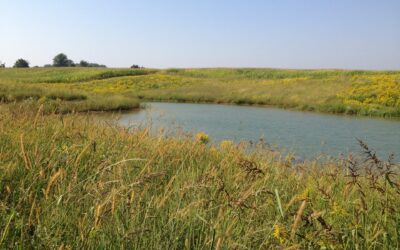This project will mitigate water-related risk, build farm resilience and enhance value for stakeholders and communities in the Lake Winnipeg basin.

This photo shows a perennial grass buffer next to the Marsh River in ALUS Seine Rat Roseau. These water-tolerant perennial grasses offer resilience to frequent periods of higher water on the river, reducing flood impacts on prime agricultural land.
WINNIPEG, MB, February 3, 2022 — Several multinational corporations and environmental not-for-profits are spearheading a new approach to water stewardship in the Canadian Lake Winnipeg basin.
“The Lake Winnipeg Basin Water Stewardship Project is an innovative collaboration aimed at a more formalized approach to on-farm water stewardship, with the goal of improving some of the most pressing environmental and climate challenges in the prairies,” says Mike Nemeth, Senior Advisor, Agricultural and Environmental Sustainability, Nutrien – the worlds largest provider of crop inputs and services. “The project is bringing together farmers, corporations, environmental not-for-profits and watershed groups to build scalable solutions to sustain agricultural production by building on-farm resilience, and sustainability value to the agri-food supply chain.”
The project will be guided by a steering committee with representatives from each of the partners. The project concept was conceived when ALUS and The Water Council approached the corporate partners seeking a joint effort to improve water quality and quantity challenges in Canada’s eastern prairies, through land and management practices in agriculture. There are many variables that influence the health of a watershed and agriculture has a role to play in finding solutions to grow healthy crops with positive environmental outcomes.
“We were delighted to see the enthusiasm to work collectively; corporate leadership is an essential part of driving positive change for improved water use and management,” says Matt Howard, Vice President for Water Stewardship, The Water Council. “The benefits of a comprehensive water stewardship strategy include reduced material risk for companies, strengthened ties with community partners and positive outcomes for local water resources — the latter even more essential with climate change.”
“Sustaining potato production in Manitoba is core to Simplot’s priorities and success. Working closely with industry partners, environmental and watershed groups allows us to examine water stewardship to benefit the entire food supply chain.” Brandy Wilson, Global Sustainability Director, J.R. Simplot Company.
The first step of the project entails working with producers in the Seine Rat Roseau and Redboine watershed districts in Manitoba’s agricultural heartland. Using the Alliance for Water Stewardship’s International Water Stewardship Standard (AWS Standard), the project manager will assist the farmers in developing a water stewardship plan. The plan will assess current farm water use and management. This approach will allow potential water-related risks to and from the farming operation to be identified. The plan will empower landowners, providing opportunities, resources and tools for them to improve land, water and nutrient management practices that help mitigate water-related risk, build farm resilience and enhance value for stakeholders and communities.
Launching this year, the pilot project will run through 2023, while on-farm projects will run for at least five years from the project launch.
“Canadian farmers are constantly facing new and complex agronomic challenges. We’re excited to be an inaugural partner in the Lake Winnipeg Basin Water Stewardship Project because we believe that efficient and sustainable agriculture plays a critical role in meeting the challenge of global water supply. BASF is committed to the protection of water resources and its responsible and sustainable use. By using innovative agricultural solutions and participating in stewardship programs like this one, farmers can improve plant health, yields, and food quality while also becoming more successful in sustainable water management and protection. Together, we can help Canada’s farmers find the right balance to achieve better yield while helping to shape a sustainable future for farming.” Katja Rochacewich, Stewardship Manager, BASF.
“We have invested in several programs throughout the region to help build the capacity of farmers and local partners to implement regenerative agricultural systems that improve soil health, water, biodiversity, and farm economic resilience. Orienting farmers to the pressing water quality challenges in the Lake Winnipeg basin and providing resources to help implement solutions will demonstrate how restoring water and nutrient cycling processes on farms benefits farmers and the network of ecosystems to which their farms are connected, including Lake Winnipeg.” Dr. Steven Rosenzweig, General Mills’ Agriculture Science Lead.
“The ALUS program is very popular with producers who want to restore natural areas to create resiliency against increasing drought and floods. This project has the potential to meaningfully scale action to buffer the impacts of changing seasons and severe weather in a way that fits with producers’ businesses and ethics.” Lara Ellis, Senior Vice-President, Policy and Partnership, ALUS.
Contact
For more information:
Will Bailey Elkin, Project Manager
[email protected]



